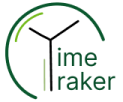What is Human Resource Management (HRM)?

Human Resource Management (HRM) plays a critical role in ensuring the success and growth of any organization. But what is human resource management exactly? HRM refers to the strategic approach of effectively managing people in a company or organization to help the business achieve its goals. It encompasses various functions such as recruitment, training, performance evaluation, and employee retention. HRM has evolved with the inclusion of strategic human resource management practices, the use of human resource software, and the integration of tools like time management and time tracking software to streamline processes. With tools like Time Traker, HR departments can enhance efficiency and monitor employee performance more effectively.
Understanding What is Human Resource Management (HRM)
What is Human Resource Management (HRM)? In essence, HRM is the process of hiring, developing, managing, and retaining employees within an organization. HR professionals ensure that the organization has the right people in the right roles, and they work to optimize the performance and well-being of employees. HRM covers a broad range of activities, including:
- Recruitment and selection
- Training and development
- Performance management
- Employee relations
- Compensation and benefits
- Legal compliance and workplace safety
By strategically aligning these functions with the overall objectives of the organization, HR professionals help drive business success while maintaining a positive and productive workforce.
What is Strategic Human Resource Management?
In addition to understanding what is human resource management, it’s essential to explore what is strategic human resource management (SHRM). SHRM goes beyond the day-to-day operations of HRM and focuses on long-term, future-oriented approaches. It integrates HR practices with the company’s strategic goals to ensure that the human capital contributes to organizational growth.
Strategic human resource management involves:
- Aligning HR policies with business strategies
- Workforce planning to meet future needs
- Developing leaders from within the organization
- Implementing performance management systems that promote growth
- Utilizing analytics to make data-driven decisions
By adopting SHRM practices, companies can gain a competitive advantage through their workforce, ensuring that employees are fully engaged and contributing to the company’s success.
The Role of Human Resource Software in HRM

As HRM has evolved, so has the technology used to support it. Human resource software plays an increasingly important role in managing HR functions more efficiently. These software tools streamline a wide variety of HR activities, from recruitment and onboarding to performance tracking and compliance management. The benefits of HR software include:
- Automation of routine tasks, freeing up time for strategic HR activities
- Improved accuracy in data management
- Enhanced employee experience through self-service options
- Centralized data storage for easy access and reporting
- Integration with other business systems like payroll and time tracking
A great example of how technology enhances HRM is Time Traker. Time Traker simplifies the process of time tracking, allowing HR professionals to monitor employee attendance, productivity, and project management seamlessly. With the integration of time tracking software, HR departments can gain valuable insights into how employees are spending their time, identify productivity bottlenecks, and ensure compliance with labor laws.
The Importance of Time Management in HRM
Effective time management is crucial for both employees and HR departments. For employees, managing their time efficiently allows them to complete tasks on schedule, balance work-life responsibilities, and reduce stress. For HR professionals, time management ensures that HR processes such as recruitment, onboarding, and performance evaluations are handled promptly and efficiently.
HR teams can utilize time management tools like Time Traker to keep track of employee hours, manage payroll more effectively, and ensure compliance with labor regulations. By monitoring how time is allocated, HR professionals can make informed decisions that improve overall productivity and employee satisfaction.
Time Tracking Software for HRM

Incorporating time tracking software into HRM practices can lead to significant improvements in workforce management. Tools like Time Traker provide HR departments with detailed reports on employee work hours, project durations, and overtime, ensuring accurate payroll and compliance. Benefits of using time tracking software include:
- Monitoring employee attendance and punctuality
- Identifying trends in absenteeism or overwork
- Improving project management by tracking time spent on tasks
- Ensuring compliance with labor laws regarding working hours and breaks
- Boosting transparency and trust between employees and management
By leveraging Time Traker’s time tracking software, HR professionals can gain better visibility into workforce operations and make data-driven decisions that enhance both efficiency and employee well-being.
How Time Traker Supports Human Resource Management
Time Traker is an essential tool for modern HR departments looking to optimize their operations. It provides seamless integration with payroll systems like QuickBooks Online, making time tracking and payroll management effortless. Additionally, Time Traker helps HR professionals gain insights into employee productivity, manage projects, and monitor attendance with ease. Key features of Time Traker that support HRM include:
- Effortless Time Tracking: Employees can easily log their hours through a user-friendly interface, whether they are in the office or working remotely.
- Seamless Integration: Time Traker integrates with QuickBooks Online, simplifying the payroll process and ensuring accuracy.
- Detailed Reporting: HR professionals can generate detailed reports on employee attendance, overtime, and project time, helping to identify trends and make informed decisions.
- Compliance Management: Time Traker helps businesses comply with labor laws by tracking employee hours, breaks, and overtime, reducing the risk of non-compliance penalties.
By using Time Traker, HR departments can focus on strategic initiatives while streamlining time management processes, ultimately improving productivity and employee satisfaction.
Conclusion
Understanding what is human resource management and its evolving role is essential for any organization aiming to thrive in today’s competitive environment. HRM, when combined with tools like human resource software, effective time management, and innovative solutions like time tracking software from Time Traker, becomes a powerful driver of organizational success.
Strategic human resource management goes beyond the basic functions of HR and focuses on aligning HR practices with long-term business goals. Incorporating technology into HRM practices, especially through solutions like Time Traker, ensures that businesses can manage their workforce more efficiently, enhance employee satisfaction, and drive growth.
By leveraging the insights and tools provided by Time Traker, HR professionals can manage time more effectively, track employee productivity, and create an environment that promotes efficiency and success. In today’s fast-paced business world, integrating technology into HRM practices is no longer a luxury—it’s a necessity.
